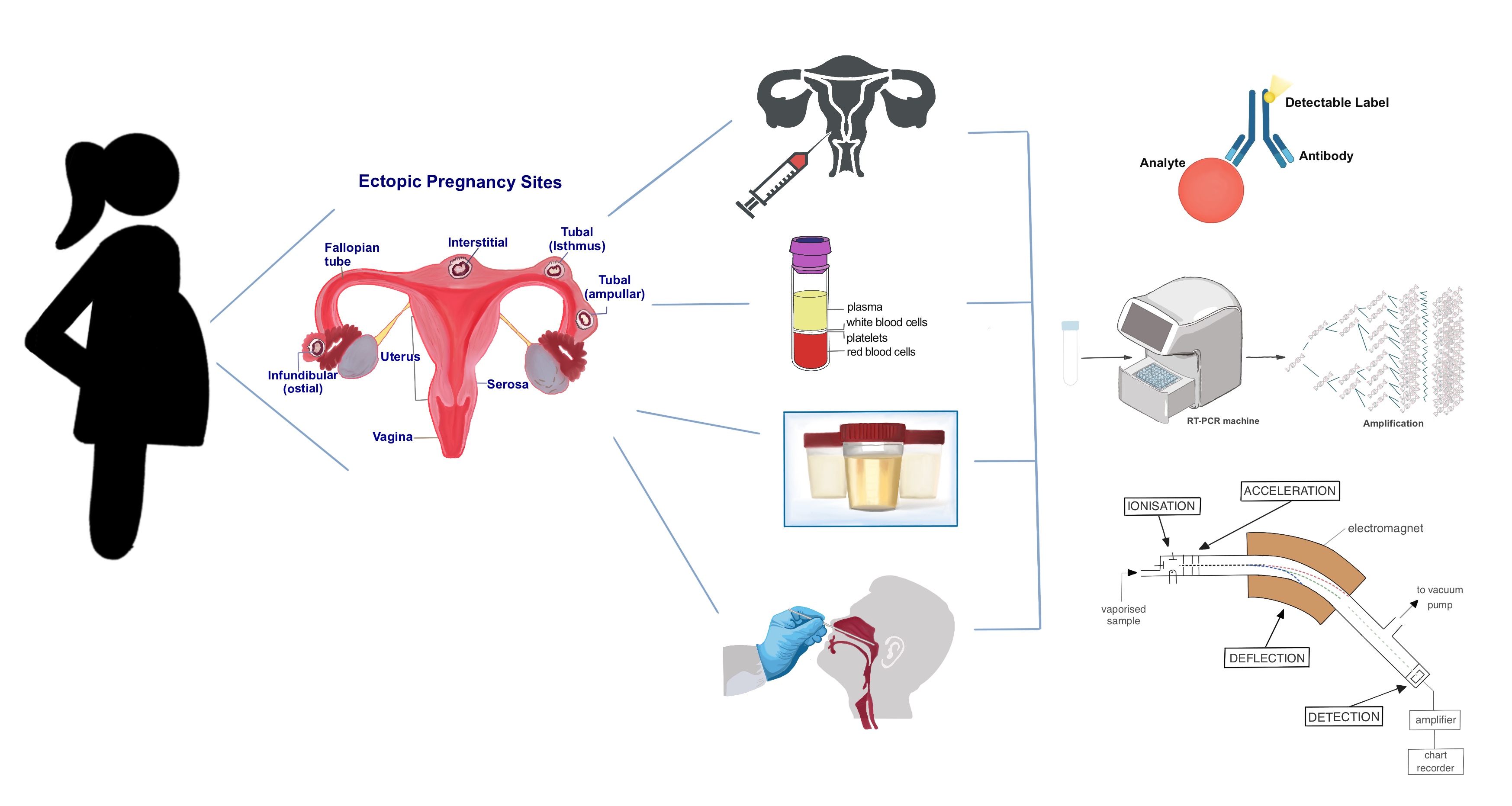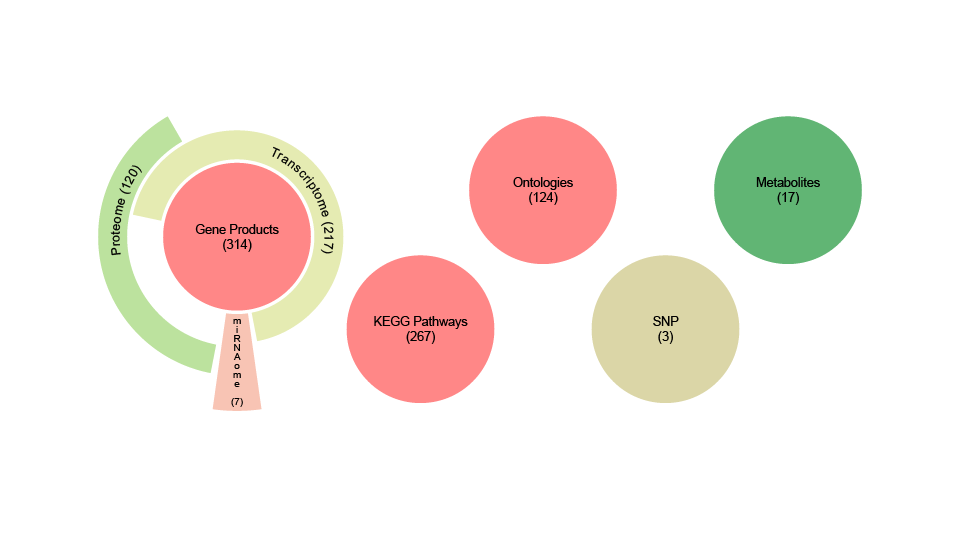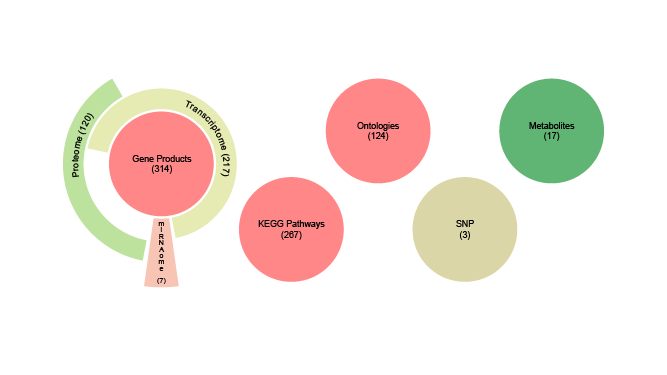
Ectopic pregnancy is a critical condition in which the fertilised egg implants and grows outside the uterus. It is the leading cause of maternal deaths in early pregnancy [Lawani et al (2013)]. Ectopic Pregnancy Expression Knowledgebase (EPEK) compiles the list of genes, proteins, metabolites, miRNAs and SNPs that are involved in ectopic pregnancy identified from published literature specific to humans. We built this resource to help identify important pathways involved in the pathophysiology of ectopic pregnancy.
EPEK contains curated information on 217 genes, 120 proteins, 7 miRNAs, 17 metabolites and 3 SNPs involved in ectopic pregnancy. The genes and proteins were mapped to their respective standard identifiers - NCBI gene IDs and Uniprot IDs - while the metabolites were mapped to their PubChem and CAS IDs. The records for each entry also showcase the literature references, the tissue in which expression was measured, the experimental technique used for the same and the controls used.
The current release of EPEK version 1.0 was released on 20 December 2022.


Please hover and click on the desired option
EPEK is a comprehensive knowledgebase of expression data relevant to ectopic pregnancy in humans that has been collated and curated from the published scientific literature. We are not liable for any inaccuracies or omissions of any expression data or published scientific literature pertaining to ectopic pregnancy, and users are recommended to use their own discretion while utilizing our resource. The primary goal of developing this resource is to facilitate basic research on ectopic pregnancy in humans, and it does not necessarily reflect the views or objectives of our employers or funders.